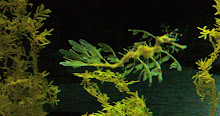One of the more depressing wildlife stories to hit the news this week was that of the pet shop in Yokohama, which sells all sorts of rare, difficult-to-care-for and (allegedly) endangered species to the general public. That story was published in a British tabloid newspaper (The Sun)- you can find it here- http://www.thesun.co.uk/sol/homepage/features/2667441/Pick-up-a-penguin-sloth-or-alligator-at-worlds-most-exotic-pet-shop.html.
Of course, not all animals adopted by individuals have a bad life – the story of “Christian-the-lion” (a captive bred lion cub bought in Harrods’ Pet Shop and eventually released into the wild by his owners) is wonderfully uplifting (http://victorianeblik.blogspot.com/2009/08/christian-lion.html)- but, on the whole, this trade clearly does not benefit anyone.
I think the most interesting science story this week, however, is this scientific study by Craig Bennett and colleagues at The University of California and Dartmouth College, New Hampshire measuring brain activity in a dead fish. The point of the publication (a scientific poster), of course, is to show that fMRI (a tool used in a lot of studies of brain activity) can give false readings and should be used with caution. There’s a synopsis of the study and paper on “Wired” –here- http://www.wired.com/wiredscience/2009/09/fmrisalmon/
The article’s dry tone and some of the comments are pretty good: nerd-humour at its finest.
Friday, 20 November 2009
The Best of the Web- Today’s Links
Labels:
Atlantic Salmon,
Best of the Web,
Christian-the-lion,
fMRI,
Links,
Pet shop,
Yokohama
Subscribe to:
Post Comments (Atom)









No comments:
Post a Comment